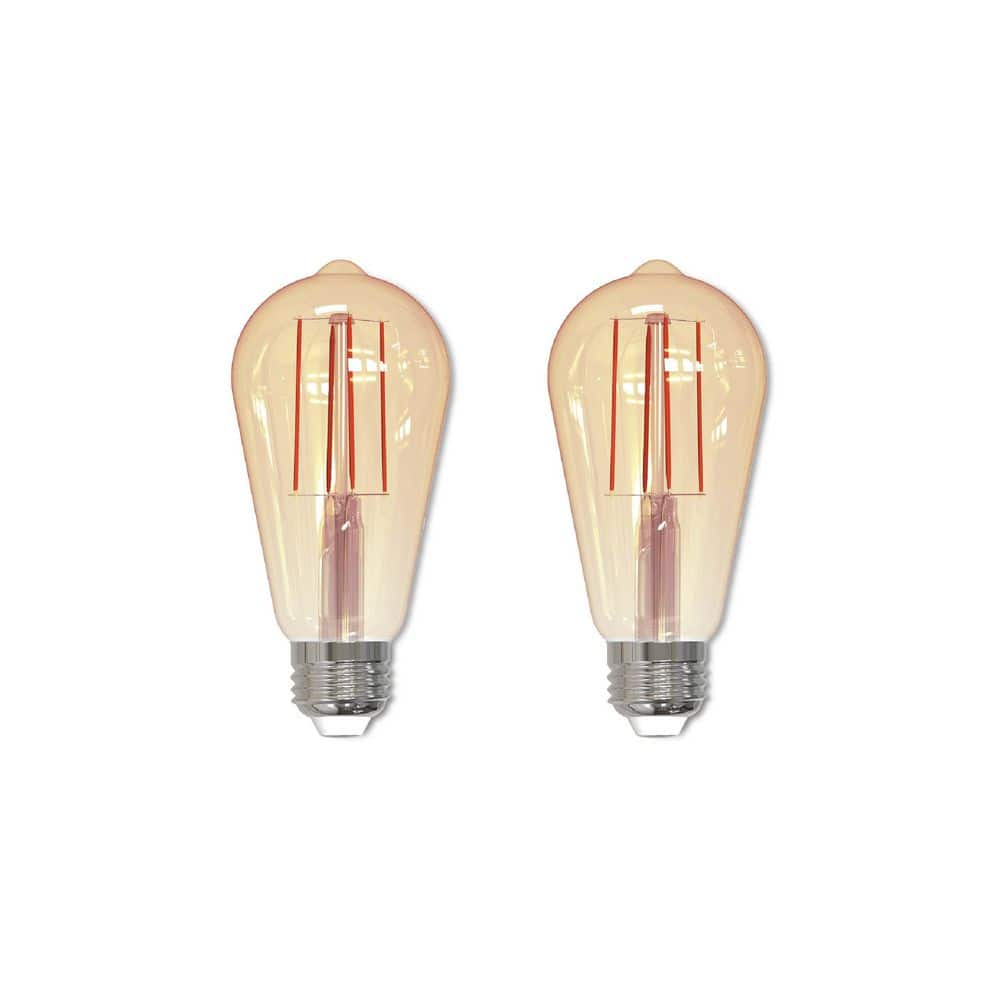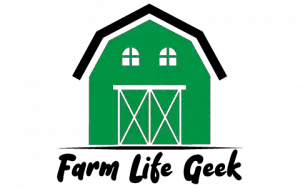Yes, halogen bulbs are safe in enclosed fixtures. The glass envelope of a halogen bulb is made of fused quartz, which can withstand high temperatures. Halogen bulbs also have a thicker filament than other types of light bulbs, so they can last longer.
Are Halogen Bulbs Safe in Enclosed Fixtures?
halogen bulbs are commonly used in both home and commercial lighting. They are available in a wide range of shapes, sizes, and wattages to suit any need.
One of the benefits of halogen bulbs is that they can be used in both open and enclosed fixtures. However, there is some debate about whether or not halogen bulbs are safe to use in enclosed fixtures.
Some people believe that halogen bulbs release harmful chemicals when used in an enclosed space.
This is because the bulbs generate heat as they produce light. When this heat is trapped inside an enclosure, it can cause the bulb to break down and release chemicals into the air. These chemicals can be harmful if inhaled or come into contact with skin.
However, there is no scientific evidence to support these claims. In fact, most experts agree that halogen bulbs are safe to use in both open and closed fixtures. So long as the fixture is properly ventilated, there is no risk of exposure to harmful chemicals.
If you have any concerns about using a halogen bulb in an enclosed fixture, be sure to consult with a qualified electrician or lighting expert before proceeding.
Light Bulb Investigators: Recessed and Enclosed Fixtures
What Should You Not Do With Halogen Bulbs?
While halogen bulbs are incredibly energy efficient and have a long lifespan, there are certain things you should avoid doing with them. Here are four things to keep in mind:
1. Don’t touch the bulb with your bare hands – the oils from your skin can cause the bulb to overheat and shatter.
Instead, use a clean cloth or glove when handling them.
2. Don’t use any cleaners or chemicals on the bulbs – this includes Windex, vinegar, and even water. These can all damage the delicate filament inside the bulb.
3. Don’t put halogen bulbs in enclosed fixtures – they need airflow to stay cool and prevent overheating.
4. Be careful when replacing halogen bulbs – if you don’t screw them in correctly, they can come loose and fall out of their socket, which can be dangerous (and cause a fire hazard).
Are Halogen Lamps a Fire Hazard?
Most people think of halogen lamps as being safe, but there is always the potential for fire if they are not used properly. Halogen lamps work by using a small amount of halogen gas inside a sealed glass envelope. The gas helps to start the reaction that produces light when electricity is applied to the filament.
If a halogen lamp is damaged, it can start a fire very easily. The most common way that this happens is when the glass envelope is broken and the gas escapes. If there is an ignition source nearby, such as a candle or another light bulb, the gas can ignite and cause a fire.
Another way that halogen lamps can cause fires is if they are not properly ventilated. If they are left on for too long in an enclosed space, the heat from the lamp can build up and eventually cause something else in the room to catch fire.
Halogen lamps are generally safe if used properly, but it’s important to be aware of the potential dangers they pose.
Always make sure that your lamp is in good condition and never leave it on unattended in an enclosed space.
Why are Led Bulbs Not to Be Used in Enclosed Fixtures?
One of the main reasons why LED bulbs are not to be used in enclosed fixtures is because they can overheat. LED bulbs produce light by using a semiconductor to convert electricity into light. This process of conversion creates heat, and when this heat is confined within an enclosed space, it can cause the temperature of the LED bulb to rise significantly.
If the temperature of the LED bulb gets too high, it can damage the semiconductor, which will shorten the lifespan of the bulb and decrease its efficiency. Additionally, high temperatures can also cause the casing of the LED bulb to warp or melt, which can create a fire hazard.
Another reason why you shouldn’t use LED bulbs in enclosed fixtures is because they may not produce enough light.
WhenLED bulbs are used in open spaces, they can take advantage of reflective surfaces to bounce light around and increase their brightness. However, when they’re placed in an enclosed fixture, there are no reflective surfaces for them to bounce light off of so their output is decreased. This could be a problem if you’re trying to use an LED Bulb as a primary source of lighting in a room because it might not provide enough illumination.
If you need to use an LED bulb in an enclosed fixture, make sure that it’s rated for that specific application. Some manufacturers make special “enclosed fixture rated” (EFR) LEDs that are designed to dissipate heat more effectively so that they don’t overheat and fail prematurely. These EFR LEDs typically cost more than standard LEDs but they will last longer and perform better in an enclosed environment.
Are Led Bulbs in an Enclosed Fixture a Fire Hazard?
Are LED bulbs in an enclosed fixture a fire hazard?
The simple answer is no, LED bulbs are not a fire hazard when used in an enclosed fixture. However, there are some important caveats to keep in mind.
First, it’s important to use LEDs that are specifically designed for use in enclosed fixtures. These LEDs will have a lower maximum operating temperature than standard LEDs, which means they’ll be less likely to overheat and cause a fire.
Second, even with specially designed LEDs, it’s important to make sure that the fixtures themselves are well-ventilated.
This will help to ensure that any heat generated by the LEDs can dissipate properly and won’t build up to dangerous levels.
Finally, it’s always a good idea to err on the side of caution and consult with an electrician or other expert before using any type of electrical device in an enclosed space. They can provide valuable guidance on how to best avoid potential hazards.

Credit: www.homedepot.com
Best Light Bulbs for Enclosed Fixtures
Enclosed light fixtures are designed to protect the bulb from outside elements, like wind and dust. This makes them ideal for use in covered porches, recessed lighting, and track lighting. And because they’re so versatile, you can find enclosed light fixtures in a range of styles to suit any space.
But what kind of light bulb should you use in an enclosed fixture? Here are a few things to consider:
1. The type of bulb.
Incandescent bulbs and halogen bulbs are not recommended for use in enclosed fixtures because they produce too much heat. CFLs and LEDs are a better choice because they emit very little heat and last longer than incandescents.
2. The wattage of the bulb.
Be sure to choose a bulb with the appropriate wattage for your fixture. If you’re not sure, err on the side of a lower-wattage bulb; higher-wattage bulbs may overheat and damage your fixture.
3. The color temperature of the light.
Warm white (around 2700K) is best for living spaces while cool white (4000K or higher) is better for work areas like kitchens and offices. You can also find bulbs with adjustable color temperatures so you can customize the light output to suit your needs.
Can Incandescent Light Bulbs Be Used in Enclosed Fixtures
Are you looking to upgrade the lighting in your home but don’t want to spend a lot of money on new fixtures? You may be wondering if you can use incandescent light bulbs in enclosed fixtures. The answer is yes, but there are a few things you need to know first.
Incandescent light bulbs produce heat as well as light. This means that they can potentially overheat and cause a fire if used in an enclosed fixture without proper ventilation. It’s important to make sure that any fixture you use them in has adequate ventilation to allow the heat to dissipate.
Another thing to keep in mind is that incandescent bulbs don’t last as long as other types of bulbs, such as LEDs. So, if you do use them in an enclosed fixture, you’ll need to replace them more often than if you were using another type of bulb.
If you’re not comfortable using incandescent bulbs in your enclosed fixtures, there are other options available.
You can purchase LED bulbs designed for use in enclosed fixtures or look for fixtures that come with built-in LED lights. Either way, you’ll be able to enjoy energy-efficient lighting without having to worry about safety issues.
Enclosed Fixture Rated Led Bulbs Lowe’S
An enclosed fixture rated LED bulb is a type of light bulb that is designed to be used in an enclosed space. This means that the bulb will not overheat and will not cause any damage to the surrounding area. These bulbs are ideal for use in areas where there is limited ventilation or where heat could be a problem.
Conclusion
Halogen bulbs are safe to use in most enclosed fixtures, as long as the fixture is properly ventilated. The main concern with using halogen bulbs in enclosed fixtures is that they can get very hot and cause a fire if the fixture is not well ventilated. If you are using a halogen bulb in an enclosed fixture, be sure to check the manufacturer’s instructions to make sure the fixture is properly ventilated.
